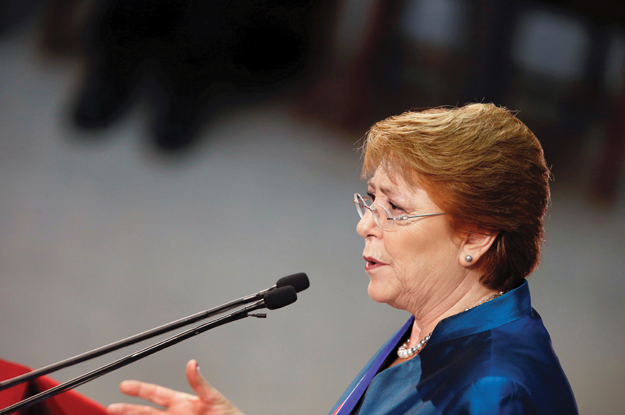In the new issue of Americas Quarterly, we asked people, “What would you tell the next U.S. president about Latin America?” To see other authors’ responses, click here.
Dear Mister / Madam President,
When President Barack Obama visited Brasília in March 2011, then-President Dilma Rousseff gave a fairly boilerplate speech in which she proposed “a partnership of equals” between the two countries.
I was a reporter covering the trip, and I was surprised to receive a call from a peeved U.S. official in Washington. “Who does Dilma think she is?” the official vented (off-record, of course). “The United States has been a democracy for more than 200 years. Brazil is doing well, sure, but let’s not pretend we’re ‘equals!’”
It’s harder to find this attitude in Washington these days — but it’s still surprisingly common, and it remains one of the biggest barriers to closer relations with Latin America. U.S. officials and academics can come up with all the great policy proposals they want, but if they give off even the slightest whiff of Cold War-era “gringo superiority” when presenting them, hearts and minds will instantly close.
I can see people rolling their eyes as they read this. The world of think tanks and government bureaucracies is supposed to be a high-minded marketplace of ideas judged by their merit. “Attitude” and presentation are supposed to be in the realm of diplomats.
Maybe that’s truer with regard to other areas of the world. But the relationships between Washington and Latin American countries remain uniquely weighed down by the historic baggage of the Cold War, the Monroe Doctrine, and the condescending “b-word” — backyard — still so often used to describe the region by U.S. media and some politicians. (Can we please retire it?)
Indeed, as recently as the 1990s and early 2000s, the era of the “Washington Consensus,” interaction with the region often consisted of fairly one-sided attempts to dictate recipes for economic growth and the terms for financing and trade. Encouraging the rest of the world to embrace democracy and capitalism should always be Washington’s goal, of course. But when then-U.S. Treasury Secretary Paul H. O’Neill mocked Argentina during its 2001 economic crisis, saying, “They’ve been off and on in trouble for 70 years … and they like it that way,” it was emblematic of the unique mix of paternalism, disdain and arrogance that was directed at Latin America for decades.
Recent events have made old perceptions even more outdated. The 2008–09 crisis showed the world that U.S. capitalism was fallible, too. Meanwhile, the region has become even more strongly democratic and prosperous. For the first time in its history, thanks to new-found political stability and smart policies, nearly half of South America’s people are middle-class or wealthier. Mexico has also made tremendous gains. This trend of “convergence” will continue, despite recent setbacks in places like Brazil. Latin Americans are justifiably proud of their achievements, aware of their new importance in the world, and will no longer tolerate being spoken down to like it’s still 1985.
That’s why, as president, you will need to make clear that you really do see our neighbors as “equals.” The tone set by the president matters, and trickles into the rest of the bureaucracy — and the country at large. Unfortunately, the unique damage done to relations with Latin America during this U.S. election cycle will probably take months, if not years, to repair. A hefty dose of humility, plus the honesty and respect that come with a relationship among peers,will certainly help.
—
Winter is the editor-in-chief of Americas Quarterly






